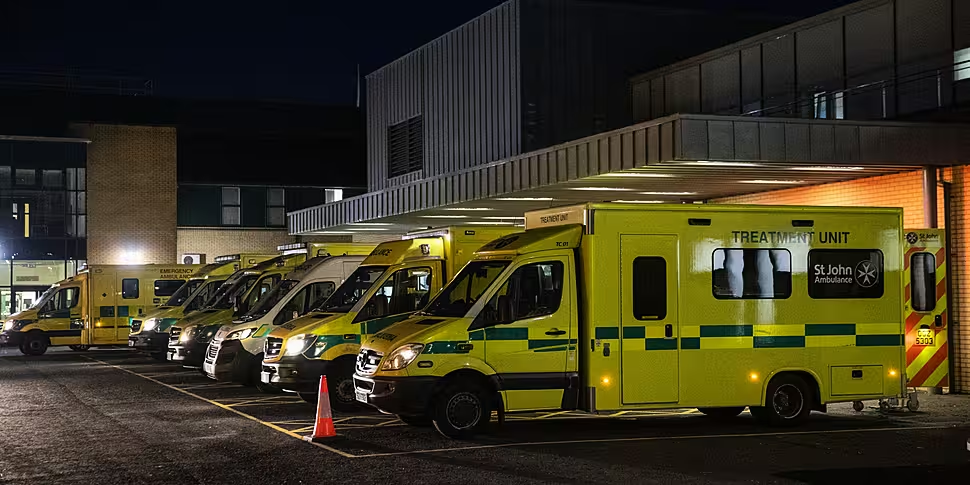In Northern Ireland, Christmas COVID-19 restrictions remain an "evolving situation" amid the tightening of rules in other parts of the UK.
That's according to the First Minister Arlene Foster, who met with the Deputy First Minister Michelle O'Neill, the Health Minister and senior health officials last night.
Further discussions expected while a six-week lockdown in the region is set to begin on December 26th.
The Stormont Executive decided this week to close non-essential shops and restrict the hospitality sector to takeaway only.
In the first week of the lockdown, households will not be allowed mix and people won't be able to leave their homes after 8pm.
However, up to three households will be allowed to gather in 'social bubbles' between the 23rd an 27th.
Meanwhile, Irish paramedics travelled across the border this weekend to help their counterparts in Northern Ireland as the health system there comes under increased pressure.
The situation in the north is precarious, according to Donegal GP Dr Denis McCauley.
He told Newstalk Breakfast with Susan Keogh that Northern Ireland probably had "no other option" but to go into another lockdown because of the high number of cases there.
He added that the "unstable nature" which healthcare staff founds themselves in was "really quite frightening".
Following PM statement, we’ve just finished a useful briefing with NI’s Health Minister, CMO & CSA. This is an evolving situation with the virus mutation. Essential that we all play our part by following the regulations.
— Arlene Foster DBE PC #ProudofNI. (@ArleneFosterUK) December 19, 2020
All-island approach
It comes after 604 new cases of COVID-19 were recorded in Northern Ireland yesterday, as well as 17 additional deaths, four of which are outside the 24-hour period.
In the Republic, Donegal still has the highest 14-day incidence rate per 100,000 of the population at 250.6.
Dr McCauley said there has been a lack of synchronicity between the restrictions north and south of the border, with people travelling across to counties in Northern Ireland bringing the virus back to border counties like Donegal.
He said: "It's a fact rather than a judgement, if there are no shops open in one particular town but four miles away there are shops open, people will tend to migrate.
"That's indicative of if Kildare and an accompanying county had a similar arrangement then I think people would act similarly."
Dr McCauley said it is "politically unacceptable" in certain parts of Northern Ireland to use the term 'all-island approach' to combating the coronavirus, but that Governments should have considered such measures.
He added: "We'll do it for our animals but we're not prepared to do it for our citizens, and I can understand that.
"Northern Ireland is in a very, very bad place but from Boxing Day they're going to be in a total lockdown which will be reassuring for Donegal.
"It will allow Donegal probably, in a way, to get on with it."









